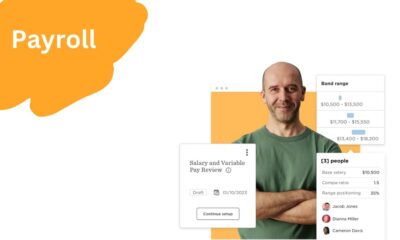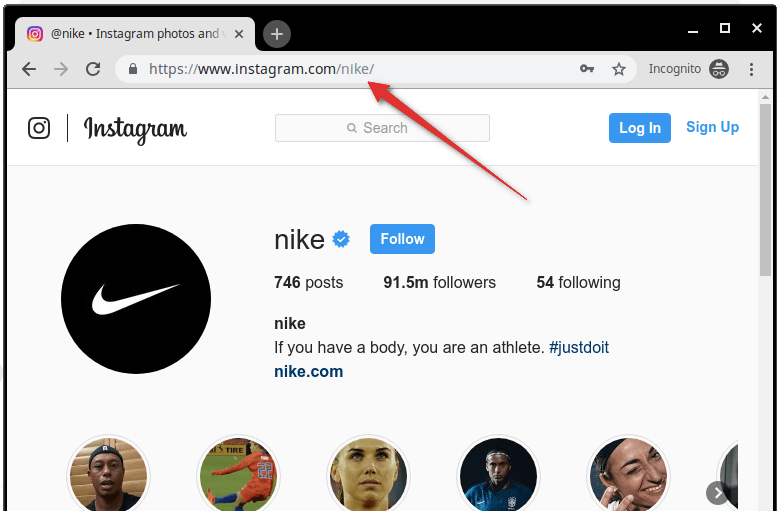Grow Your Business
Employer of Record Meaning: Decoding Guide for CEOs and CTOs
Overview of the Concept of Employer of Record (EOR)
In today’s dynamic business landscape, companies often find themselves grappling with complex employment arrangements and the associated administrative burdens. This is where the concept of Employer of Record (EOR) comes into play, offering a strategic solution to alleviate these challenges and streamline the employment process.
At its core, an Employer of Record is a specialized service provider that assumes the legal and administrative responsibilities of employing workers on behalf of another company. This arrangement allows businesses to focus on their core operations while entrusting the EOR with tasks such as payroll management, benefits administration, and compliance with employment laws. By acting as the official employer, the EOR takes on the legal and financial obligations associated with employment, enabling companies to navigate the complexities of workforce management more efficiently.
Understanding the nuances of the Employer of Record model is crucial for CEOs and CTOs seeking to optimize their workforce strategies. This comprehensive guide will delve into the definition, key responsibilities, benefits, and considerations associated with the EOR model. By the end, you will have a solid foundation to make informed decisions regarding the employment structure of your organization.
Now, let’s dive into the intricacies of the Employer of Record concept and unravel its potential advantages for your business.
Understanding Employer of Record
Definition and Explanation
When it comes to navigating the complex world of employment, employers often find themselves facing a myriad of challenges and responsibilities. One such challenge is understanding the role of an Employer of Record (EOR) and how it can benefit their organization. In this section, we will delve into the definition and explanation of an Employer of Record, shedding light on its significance in the business landscape.
At its core, an Employer of Record is a third-party entity that takes on the legal and administrative responsibilities of being an employer. In other words, they become the official employer for a specific group of employees, handling tasks such as payroll, taxes, benefits, and compliance. This arrangement allows organizations to focus on their core business activities while entrusting the intricate HR functions to a specialized partner.
The concept of an Employer of Record may seem simple, but its implications are far-reaching. By partnering with an EOR, organizations can mitigate risk, ensure compliance with local labor laws, and streamline their HR processes. This allows them to operate more efficiently and effectively, regardless of whether they are expanding internationally, managing a remote workforce, or facing complex compliance challenges.
Key Responsibilities and Functions
Now that we have covered the definition of an Employer of Record, let’s explore their key responsibilities and functions in more detail. When an organization engages the services of an EOR, they can expect the following:
- Payroll and Benefits Administration: An Employer of Record takes care of the entire payroll process, ensuring that employees are paid accurately and on time. They also handle benefits administration, including enrollment, deductions, and compliance with local regulations.
- Tax Compliance: Tax laws can be a maze to navigate, especially when operating in multiple jurisdictions. An EOR takes the responsibility of calculating and remitting taxes on behalf of the organization and its employees, ensuring compliance with local tax regulations.
- Legal and Regulatory Compliance: Staying on top of ever-changing labor laws and regulations can be a daunting task. An Employer of Record stays abreast of these changes and ensures that the organization remains compliant with all relevant employment laws, minimizing the risk of legal issues and penalties.
- Employee Onboarding and Offboarding: An EOR manages the onboarding process for new employees, handling paperwork, background checks, and other necessary procedures. Similarly, when an employee leaves the organization, the EOR takes care of the offboarding process, ensuring a smooth transition for both the employee and the employer.
- HR Support: An Employer of Record provides ongoing HR support to both the organization and its employees. This includes assistance with employee relations, performance management, and resolving HR-related issues that may arise.
By entrusting these responsibilities to an Employer of Record, organizations can focus on their core competencies, while benefiting from the expertise and efficiency of a specialized partner.
Now that we have gained a solid understanding of what an Employer of Record is and their key responsibilities, let’s explore the benefits they offer in the next section.
Benefits of Employer of Record
When it comes to navigating the complex world of employment, CEOs and CTOs are often faced with numerous challenges. From managing payroll to ensuring compliance with labor laws, the responsibilities can be overwhelming. That’s where the concept of an Employer of Record (EOR) can be a game-changer.
Cost Savings
One of the most significant benefits of an EOR is the potential for cost savings. By outsourcing employment responsibilities to an EOR provider, companies can avoid the expenses associated with hiring and maintaining an in-house HR department. This includes costs related to recruitment, training, and benefits administration. In addition, EORs can leverage their expertise and economies of scale to negotiate competitive rates for employee benefits and insurance coverage, resulting in further cost savings for the client company.
Compliance and Risk Management
Maintaining compliance with labor laws and regulations is a top priority for any business. Failure to do so can result in hefty fines and legal consequences. An EOR takes on the responsibility of ensuring compliance, staying up-to-date with ever-changing laws and regulations, and mitigating the risk of non-compliance. This is particularly important for companies expanding internationally or operating in multiple jurisdictions, as labor laws can vary significantly from one country or state to another. By partnering with an EOR, CEOs and CTOs can have peace of mind knowing that their employment practices are in line with legal requirements.
Streamlined HR Processes
Managing human resources (HR) processes can be a time-consuming task, diverting valuable resources from core business functions. An EOR can help streamline HR processes by taking over administrative tasks such as payroll processing, benefits administration, and employee onboarding. This allows CEOs and CTOs to focus on strategic initiatives and business growth. Moreover, an EOR often has access to advanced HR technology platforms, enabling efficient management of employee data, time tracking, and performance evaluations. By leveraging these streamlined HR processes, companies can enhance productivity and ensure a seamless employee experience.
In conclusion, the benefits of partnering with an Employer of Record are manifold. From cost savings and compliance to streamlined HR processes, an EOR can provide CEOs and CTOs with the necessary support to navigate the complexities of employment. By outsourcing employment responsibilities to an EOR, companies can free up valuable resources and focus on their core competencies, ultimately driving success and growth.
To learn more about the benefits of an Employer of Record, click here.
When to Consider Employer of Record
In the dynamic and ever-evolving landscape of business, CEOs and CTOs must constantly evaluate and adapt their strategies to stay ahead of the competition. One area that often requires careful consideration is the management of human resources. As companies expand globally, embrace remote work, and navigate complex compliance challenges, the concept of an Employer of Record (EOR) becomes increasingly relevant.
International Expansion
For ambitious organizations eyeing international markets, expanding operations beyond borders can be both thrilling and daunting. While the rewards can be substantial, the hurdles are not to be underestimated. From navigating local employment laws and tax regulations to establishing a legal entity in a foreign country, the complexities can quickly become overwhelming.
This is where an Employer of Record can offer invaluable assistance. By partnering with an established EOR provider, companies can leverage their expertise in managing international payroll, tax compliance, and legal obligations. This allows CEOs and CTOs to focus on the core aspects of their business, confident in the knowledge that their expansion plans are in safe hands.
Remote or Distributed Workforce
In today’s digital age, the concept of a traditional office space is rapidly evolving. The rise of remote work and distributed teams has opened up new possibilities for businesses seeking to tap into a global talent pool or offer flexible work arrangements. However, managing a geographically dispersed workforce comes with its own set of challenges.
Employers must navigate complex employment laws, tax regulations, and administrative tasks across multiple jurisdictions. This can be a time-consuming and resource-intensive process that distracts from the core goals of the organization. By engaging the services of an Employer of Record, companies can offload the burden of managing payroll, benefits, and compliance for their remote or distributed workforce. This allows CEOs and CTOs to focus on fostering collaboration, innovation, and productivity within their teams.
Compliance Challenges
In today’s business environment, regulatory compliance is a critical consideration for organizations of all sizes. The consequences of non-compliance can be severe, including hefty fines, legal repercussions, and damage to a company’s reputation. Staying up-to-date with ever-changing labor laws, tax regulations, and employment standards can be a daunting task for CEOs and CTOs.
Employers must navigate a complex web of rules and regulations, ensuring that they adhere to local, state, and federal requirements. Failure to do so can result in significant financial and legal consequences. An Employer of Record can provide companies with peace of mind by assuming the responsibility for maintaining compliance with labor laws, tax obligations, and employment regulations. By partnering with an experienced EOR provider, organizations can mitigate risk and focus on their core business objectives.
In conclusion, there are several key scenarios where considering an Employer of Record can be highly advantageous for CEOs and CTOs. From international expansion to managing remote or distributed workforces and navigating compliance challenges, an EOR can provide valuable support and expertise. By partnering with an established EOR provider, companies can optimize their operations, reduce administrative burdens, and ensure compliance with confidence. With the right EOR by their side, CEOs and CTOs can unlock new opportunities and propel their organizations towards success.
Differences Between Employer of Record and Other Employment Models
Comparison with PEOs and Staffing Agencies
When it comes to managing a workforce, companies have several employment models to choose from. Two popular alternatives to the Employer of Record (EOR) model are Professional Employer Organizations (PEOs) and Staffing Agencies. While all three options provide solutions for hiring and managing employees, there are distinct differences that set them apart. Let’s explore how EORs compare to PEOs and Staffing Agencies.
Professional Employer Organizations (PEOs) are organizations that partner with companies to handle various HR functions, including payroll, benefits administration, and compliance. One of the key differences between EORs and PEOs is the degree of control they offer to the client company. With a PEO, the client company retains a significant level of control over the day-to-day operations, including hiring and managing employees. The PEO acts as a co-employer, sharing employer responsibilities with the client company. This shared responsibility can sometimes lead to complexities in decision-making and can limit the client company’s autonomy.
On the other hand, an Employer of Record assumes full employer responsibility and liability for the employees. This means that the EOR takes care of all HR functions, including payroll processing, tax withholding, benefits administration, and compliance with local labor laws. The client company maintains control over the employees’ work assignments and performance while delegating the administrative burdens to the EOR. This allows the client company to focus on its core business operations without worrying about the complexities of HR management.
Staffing Agencies, also known as employment agencies or recruitment agencies, primarily focus on sourcing and placing temporary or contract employees on behalf of client companies. Unlike EORs and PEOs, staffing agencies are not responsible for the overall management of the employees. Instead, they act as intermediaries between job seekers and client companies, helping to match qualified candidates with specific job requirements. Staffing agencies typically charge a fee or commission based on the duration of the assignment or the employee’s salary. While staffing agencies can provide valuable talent acquisition services, they may not offer the comprehensive HR support and compliance management that an EOR or PEO can provide.
Pros and Cons
Now that we have a better understanding of the differences between EORs, PEOs, and Staffing Agencies, let’s consider the pros and cons of each option.
Employer of Record (EOR):
Pros:
- Comprehensive HR support, including payroll processing, benefits administration, and compliance management.
- Reduced administrative burden for the client company, allowing them to focus on core business operations.
- Expertise in local labor laws and regulations, ensuring compliance in different jurisdictions.
- Flexibility to scale the workforce up or down as needed, without the need for extensive hiring processes.
Cons:
- Limited control over day-to-day operations and management of employees.
- Potential dependency on the EOR for HR-related decisions and processes.
Professional Employer Organizations (PEOs):
Pros:
- Shared employer responsibility, allowing the client company to maintain control over day-to-day operations.
- Access to a wide range of HR services, including benefits administration and compliance management.
- Potential cost savings through economies of scale in purchasing employee benefits.
Cons:
- Complexity in decision-making due to the shared responsibility between the client company and the PEO.
- Potential lack of flexibility in customizing HR processes to suit the client company’s specific needs.
Staffing Agencies:
Pros:
- Access to a pool of pre-screened and qualified candidates for temporary or contract positions.
- Time and cost savings in the recruitment process, as the staffing agency handles candidate sourcing and screening.
Cons:
- Limited HR support beyond talent acquisition.
- Potential lack of control over the employees’ day-to-day activities and performance.
Choosing the right employment model depends on the specific needs and priorities of the client company. While PEOs and Staffing Agencies offer their own advantages, an Employer of Record provides comprehensive HR support and compliance management, allowing the client company to focus on its core business operations and streamline HR processes.
In the next section, we will explore the factors to consider when choosing an Employer of Record provider. Stay tuned!
Related Links:
- Employer of Record Benefits
- Employer of Record Services
- What is an Employer of Record
- Employer of Record Definition
- Employer of Record Cost
- Employer of Record Payroll
- Employer of Record Compliance
- Employer of Record Model
- Employer of Record Advantages
How to Choose an Employer of Record Provider
When it comes to selecting an Employer of Record (EOR) provider, CEOs and CTOs must consider several factors to ensure they make the right choice for their organization. The decision to partner with an EOR is a significant one, as it involves entrusting a crucial aspect of your business operations to a third party. To help you navigate this process effectively, let’s explore the factors to consider and the questions to ask when choosing an Employer of Record provider.
Factors to Consider
- Expertise and Experience: Look for an EOR provider with a proven track record in the industry. Consider their experience working with businesses similar to yours, as this demonstrates their understanding of your specific requirements.
- Global Reach: If you are planning international expansion, it is essential to partner with an EOR provider that has a global presence. They should have extensive knowledge of local labor laws, regulations, and cultural nuances to ensure compliance and successful operations in multiple countries.
- Compliance and Risk Management: One of the primary benefits of an EOR is their ability to handle complex compliance requirements. Ensure that the provider you choose has robust systems in place to manage payroll, taxes, benefits, and legal compliance in all relevant jurisdictions. This will help protect your organization from potential risks and penalties.
- Technology and Infrastructure: A reliable EOR provider should have advanced technology platforms that streamline HR processes, provide real-time reporting and analytics, and facilitate seamless communication between all stakeholders. Evaluate their systems to ensure they align with your organization’s technological requirements.
- Scalability: As your business grows, your EOR provider should be able to scale their services accordingly. Whether you need to onboard a few employees or manage a large global workforce, make sure the provider has the capacity to accommodate your expansion plans.
Questions to Ask
- What services do you offer as an EOR provider? Inquire about the specific services they provide, such as payroll administration, benefits management, and compliance support. Understanding their capabilities will help you assess if they align with your organization’s needs.
- How do you ensure compliance with local labor laws and regulations? Compliance is a critical aspect of employing workers in different countries. Ask about their processes, systems, and expertise in managing compliance to ensure that they have a robust framework in place.
- What is your experience working with companies in our industry? It is beneficial to partner with an EOR provider that has experience serving businesses in your industry. Their familiarity with industry-specific requirements can streamline the onboarding and management processes.
- How do you handle employee benefits and insurance? Employee benefits play a crucial role in attracting and retaining top talent. Ensure that the EOR provider offers comprehensive benefits packages and has the necessary expertise to manage them effectively.
- What level of support and communication can we expect? Clear and open communication is key to a successful partnership. Ask about their communication channels, response times, and the level of support they provide to clients. This will help establish expectations and ensure a smooth working relationship.
By considering these factors and asking the right questions, you can make an informed decision when selecting an Employer of Record provider. Remember, your choice of EOR partner will significantly impact your organization’s compliance, risk management, and HR processes. So take the time to research, evaluate, and choose wisely to maximize the benefits of this employment model.
For more information on Employer of Record providers and the advantages they offer, check out our article on employer of record benefits.
Conclusion
Understanding the concept of Employer of Record (EOR) is crucial for CEOs and CTOs who want to navigate the ever-evolving landscape of employment models and effectively manage their workforce. By serving as the legal employer for their workers, an Employer of Record takes on important responsibilities and functions, providing numerous benefits for businesses.
One of the primary advantages of an Employer of Record is the cost savings it offers. By outsourcing certain HR functions such as payroll, benefits administration, and compliance, companies can reduce their overhead expenses and focus on their core competencies. Additionally, an Employer of Record can help businesses navigate the complexities of compliance and risk management by ensuring that they adhere to local labor laws, tax regulations, and employment standards. This not only mitigates legal risks but also enhances the company’s reputation.
Furthermore, an Employer of Record streamlines HR processes, allowing companies to concentrate on their strategic objectives. Instead of spending valuable time and resources on administrative tasks, CEOs and CTOs can rely on the expertise of an Employer of Record to handle matters such as employee onboarding, contract management, and benefits administration. This enables businesses to operate more efficiently and allocate their resources wisely.
When considering whether to engage an Employer of Record, there are specific scenarios where it becomes particularly advantageous. For instance, international expansion often presents unique challenges related to local labor laws, cultural differences, and administrative complexities. In such cases, an Employer of Record with global expertise can provide the necessary support to navigate these hurdles successfully. Additionally, businesses with a remote or distributed workforce can benefit from the services of an Employer of Record, as it ensures compliance and simplifies HR administration regardless of employees’ locations.
Differentiating an Employer of Record from other employment models is essential. While PEOs and staffing agencies may offer similar services, they differ in terms of legal responsibilities and the depth of their involvement in HR management. It is crucial for CEOs and CTOs to weigh the pros and cons of each model to determine which one aligns best with their business objectives and legal requirements.
When selecting an Employer of Record provider, several factors should be considered. These include the provider’s expertise in the desired geographical areas, their track record in maintaining compliance, their ability to handle specific HR functions, and their overall reputation within the industry. Asking relevant questions about the provider’s services, cost, payroll processing, and compliance procedures can help CEOs and CTOs make an informed decision.
In summary, an Employer of Record serves as a valuable partner for businesses seeking to streamline their HR processes, reduce costs, and ensure compliance. Understanding the definition, benefits, and differences between an Employer of Record and other employment models is essential for CEOs and CTOs to make strategic decisions about their workforce management. By leveraging the services of an Employer of Record, businesses can focus on their core competencies and achieve their growth objectives. So why not explore the advantages offered by an Employer of Record today?
To learn more about the concept of Employer of Record and its benefits, you can visit our website: outsourceit.today.













